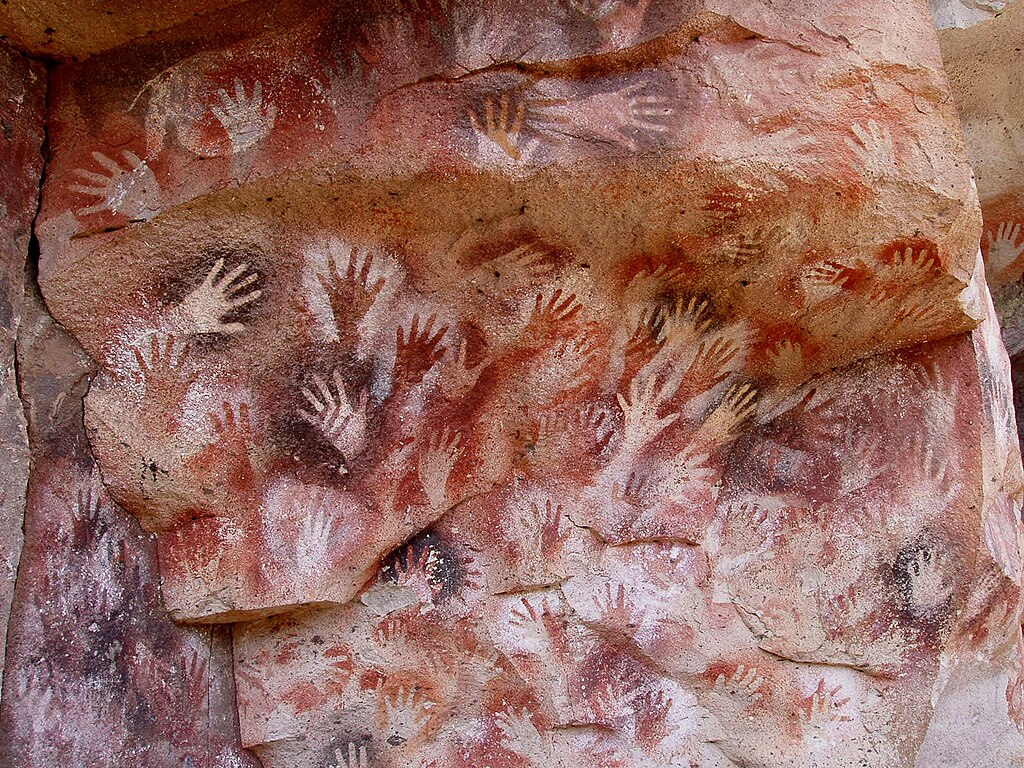
Citizen science in conflict zones for community empowerment
Stefania Oikonomou
Nov. 27, 2023, 8:28 a.m.
Authors: Katerina Zourou, Stefania Oikonomou, Web2Learn
Photo: Cueva de las manos, Santa Cruz, Argentina (public domain)
Armed conflicts continue to populate (unfortunately!) the columns of news websites and social media feeds. From Afghanistan to Ukraine and the Middle East, communities are faced with war-induced humanitarian and environmental consequences. In such challenging socio-environmental conditions, where everything seems to fall apart, how can the European citizen science community support recovery of war-affected communities? How can citizens leverage the potential of citizen science to demand environmental justice in the post-war era?
Acknowledging the complexity of this issue, we aim to share some reflections as a contribution to these open questions.
Citizen science during war
Armed conflicts and wars pose a serious threat to biodiversity and natural heritage of communities. The direct impacts to the environment are usually followed by indirect effects, such as illegal deforestation, that continue harming an already fragile ecosystem (Schulte to Bühne, H., Weir, D. 2022). Despite these critical conditions, being aware of the magnitude and severity of war-induced environmental damages is indispensable either for communities on the ground or the international community, especially researchers and experts.
Naturally, security reasons often impede the recruitment of volunteers, leading to remote sensing (mainly satellite data) to be the major official source of data collection and information to outsiders. Nevertheless, such an approach almost excludes civic engagement in environmental monitoring, thus missing the opportunity to build capacity of affected communities to become advocates and agents of environmental justice in the post-war recovery phase. In this disruptive context, more voices are calling for citizen science initiatives in conflict areas to a) recognise and enhance local knowledge (Weir, McQuillan & Francis, 2019) and b) foster participation and advocacy within communities.
The Ukrainian case
The outbreak of the war in Ukraine reminded the international community of the dire impact of it to the country’s environment. Amid adversity, citizen science initiatives emerged, supported by organisations within and beyond Ukraine, such as Safe Cast and Clean Air Ukraine (Zourou & Oikonomou, 2022). Interestingly, more remote sensors and monitoring stations were set up by citizens and authorities all over Ukraine, gathering real-time data that figure in online spaces like SaveEcoBot and Ecodozor. All these initiatives show the way of more community-driven engagement in environmental citizen science and advocacy, making collaboration between knowledge institutions and communities more needed than ever before.
What’s next?
Doing citizen science with and for war-affected communities brings to our focus new dimensions that emerge as a result of it, such as the legal aspect and value of citizen-generated data, or ethical considerations that interfere between security concerns and the quest for open access and community-ownership of data. In the intersection of these dimensions, a 2-year Erasmus+ project GROMADA (“European universities supporting legal and community capacities for Ukraine’s environmental recovery”, https://gromada.blogg.lu.se/) is launched officially in December 2023 to support public and legal capacity for environmental recovery in Ukraine by developing a “citizen science-law-environment” approach.
Ph: Stefania Oikonomou, Web2Learn
References:
Schulte to Bühne, H., Weir, D. (April 11, 2022). Do mention the war: Why conservation NGOs must speak out on biodiversity and conflicts. Conflict and Environment Observatory, https://ceobs.org/do-mention-the-war-why-conservation-ngos-must-speak-out-on-biodiversity-and-conflicts/
Weir, D., McQuillan, D., Francis, R.A.(2019). Civilian science: the potential of participatory environmental monitoring in areas affected by armed conflicts. Environmental Monitoring and Assessment 191, Article number: 618. https://doi.org/10.1007/s10661-019-7773-9
Zourou, K., Oikonomou, S. (2022). Citizen science for environmental and health issues in conflict zones. European Citizen Science Association. ECSA Conference 2022: Citizen Science for Planetary Health, 5-8 October 2022, Berlin, Germany. https://www.slideshare.net/Web2Learn_eu/zourouoikonomou-2022ecsa-2022-no-refspptx?from_search=9
More news on the GROMADA project: https://web2learn.eu/portfolio/gromada/
Ph: Cuevas de las manos, Santa Cruz, Argentina (public domain)